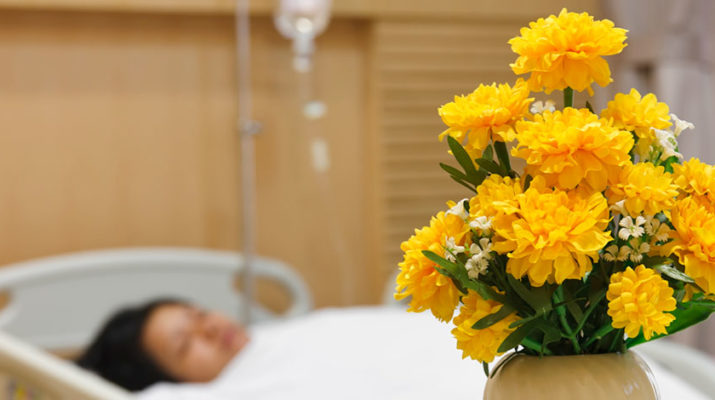Local professionals agree: Plants, flowers have positive effect on hospital patients
By Deborah Jeanne Sergeant
Do you know someone who’s ill or injured? If you’re going for a visit, chances are you’ll likely bring along a gift as good manners.
But taking a bouquet or plant to a friend admitted to the hospital or recuperating at home is more than just a thoughtful gesture. A gift of flowers may actually help the patient get better. Here is more info on getting the amazing perfect gift for the one you love.
A study by the American Society for Horticultural Science indicates that post-surgery patients between age 19 and 60 recovering in 40 hospital rooms with 12 plants and flowers had measurably lower blood pressure and heart rates than the 40 patients in control rooms with no plants or flowers.
Patients with foliage also reported less pain, reduced need for pain relievers and lower levels anxiety, plus greater patient satisfaction rates than the control rooms that were identical in every way, including the rooms’ views, except for the lack of plants. The patients were aware that the study provided the plants and flowers.
“Green plants give off oxygen,” said Joyce Wagner, Ph.D. of Restoration Counseling of Rochester. “They’re living organisms.”
She said that because plants clean the air, they can help patients feel better and because “it’s less sterile, clinical and more personal” with plants. “It could evoke positive memories from the past.”
Physician Chanh Huynh with Churchville-Chili Family Medicine LLC in North Chili said that the presence of flowers offers therapeutic effects on health. “The old adage is to ‘stop and smell the roses.’ A major part of it is the connotation that having nature in your immediate surrounding helps you embrace feelings of peace and refreshment,” Huynh said. “It’s a positive distraction and can provide a feeling of companionship.”
Many studies indicate access to nature as beneficial to patients, such as a hospital window facing a park, photos of peaceful nature scenes or even viewing the color green. Flowers in a hospital room could provide another means for patients to connect with nature.
Huynh said that when he sees a flower, “it reminds me of what Jesus said, ‘Look at the lilies of the field, yet I say unto you, that even Solomon in all his glory was not arrayed like one of these’ (Matthew 6:38).
“The model for our practice is cheerful, competent and to glorify God. The Lord provides for the lilies of the field. I was comforting a close friend and she was anxious. There was a flower next to us and I reminded her of that story. They’re reminders in nature that he planted to remind us of him. It points us to the glory of God.”
For some patients, closeness to elements from nature can help them feel better connected to the outside world beyond their four hospital walls and to the people who placed the flowers in their room.
The study’s abstract said that the flowers provided “effective positive distraction, which may provide ample involuntary attention, increase positive feelings, block or reduce worrisome thoughts and promote restoration from stress.”
Though the participants in the American Society for Horticultural Science were aware that they received their flowers as part of a study, the presence of the bouquets and plants seemed to make the patients’ rooms feel special, which can provide a powerful emotional benefit. Patients allergic to flowers may still benefit from images depicting nature, like a card with flowers on it or a gift like balloons, stuffed animals or cards.

